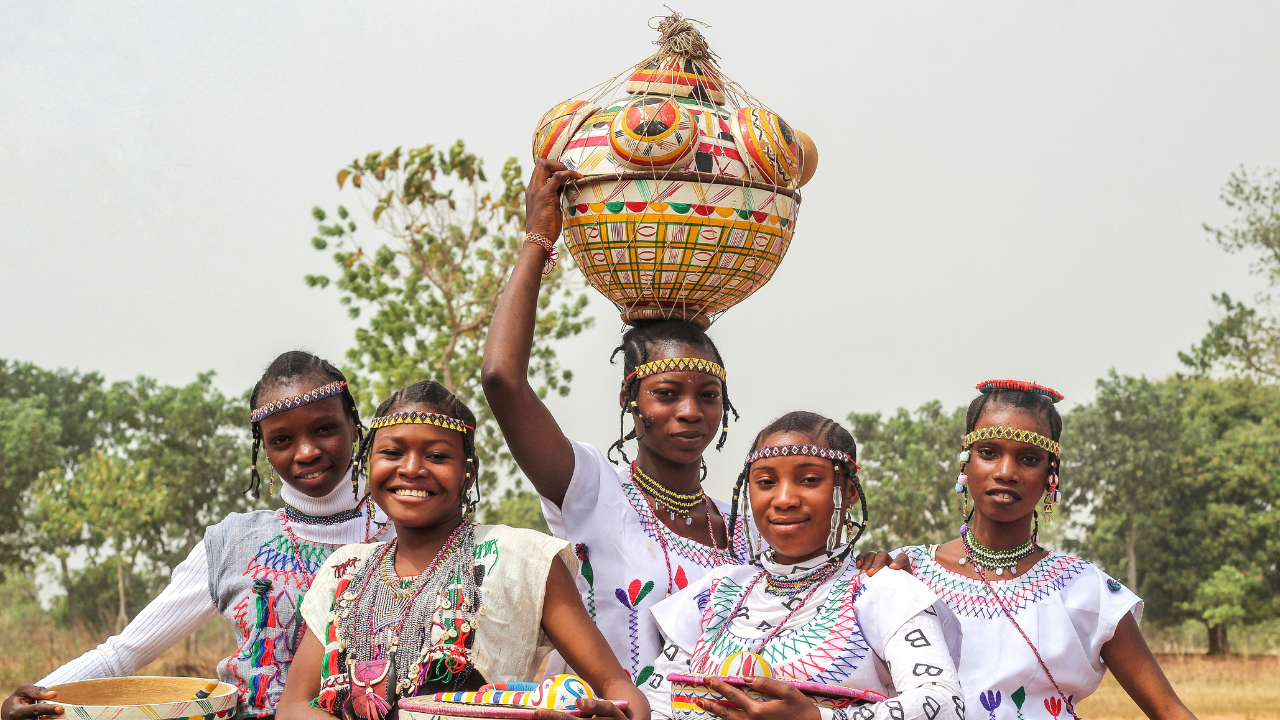Cultural Tourism and the African Diaspora: A Blueprint for Entrepreneurs to Succeed in the Modern Tourism Landscape

What if you could tap into a tourism market that is deeply invested in cultural connection and ancestral discovery? What if your business could offer experiences that resonate with the heart of an entire community — a community spread across continents yet forever linked by history, identity, and shared cultural roots? Welcome to the world of African diaspora tourism, an evolving and powerful force in the global tourism industry.
Learn with AClasses Media and improve yourself and your business skills
In this article, we will explore the potential of diaspora tourism — specifically African diaspora tourism — and the critical role entrepreneurs like you can play in shaping this landscape.
Through the lens of Obehi Ewanfoh’s journey and insights, we’ll dive into the intersection of culture, identity, and travel, showing you how to successfully attract and serve this unique audience while fostering an authentic, enriching experience.
Understanding the African Diaspora: A Rich Tapestry of History and Identity
The African diaspora is more than just a concept — it is the collective narrative of millions of people scattered across the world yet undeniably connected to the African continent.
The word “diaspora” itself comes from the Greek words dia (through) and speiro (to scatter), originally used to describe the Jewish people’s exile from Israel. Over time, the term has expanded to include communities of people who have migrated, often involuntarily, from their ancestral homelands.
In the case of the African diaspora, this includes descendants of those who were forcibly displaced during the transatlantic slave trade, colonialism, and even more recent waves of migration.
Today, the African diaspora is a vast, global community with a strong sense of shared heritage. From the Caribbean to the Americas, Europe to the Middle East, and beyond, Africans in the diaspora maintain deep cultural and emotional ties to their ancestral lands.
Yet for many, the connection to the motherland has remained intangible, an ancestral thread that pulls at the heart but remains distant. This is where cultural tourism, specifically diaspora tourism, becomes a vital force for reconnection.
The Growing Influence of the African Diaspora
According to different reports, Africa’s diaspora is made up of over 200 million people, representing an enormous economic and cultural force. The African diaspora in North America alone — which includes people from the United States, Canada, and the Caribbean — is a market worth billions in terms of remittances, consumer spending, and tourism.
The African American population alone is expected to have a purchasing power of over $1.7 trillion by 2025, with a significant portion of that directed toward cultural and heritage tourism.
This potential has not gone unnoticed by tourism entrepreneurs. As people become more attuned to the importance of cultural heritage, they seek to reconnect with their roots, not just through history books or distant memories, but through firsthand experiences — and the African continent is one of the most coveted destinations.
See also Crafting Emotional Narratives: A Blueprint for Attracting Ideal Clients to Your Tourism Business
Whether it’s visiting Ghana’s Elmina Castle to reflect on the transatlantic slave trade, walking the streets of Lagos to trace family roots, or experiencing the vibrant festivals of South Africa, the African diaspora has an insatiable desire to experience their history, culture, and identity in person.
The Power of Cultural Tourism: Why It Matters for the African Diaspora
Cultural tourism is unique because it goes beyond the typical vacation experience. For the African diaspora, tourism is not just about relaxation or exploration. It’s about emotional and spiritual journeys to rediscover heritage, reclaim history, and affirm identity.
According to Coles and Timothy (2004), diaspora tourism encompasses all activities related to the consumption of cultural experiences by diasporic communities. For many in the African diaspora, this is not just a form of leisure travel but a means of personal and collective healing.
As Obehi Ewanfoh himself states, cultural preservation and exploration are critical components of diaspora tourism. His lifelong journey from his early days in Uromi, Nigeria, to his time in Italy reflects this search for identity and belonging.
His advocacy for cultural preservation and storytelling has been pivotal in helping African diaspora communities understand and appreciate the power of their narratives.
Lessons for Entrepreneurs in Diaspora Tourism
Ewanfoh’s work offers several key lessons for tourism entrepreneurs looking to enter the African diaspora market.
Create Authentic, Culturally Rich Experiences:
The African diaspora seeks authenticity. It’s not enough to offer a generic cultural experience. Tourists from the diaspora want to connect with their specific heritage — whether that’s through local guides who speak their native language, visiting ancestral homes, or participating in festivals that are deeply rooted in their culture.
See also The Power Of Your Story: Embracing Authenticity When Nobody Is Watching
Authenticity is the cornerstone of cultural tourism, and the African diaspora will support businesses that respect and honor their histories.
Leverage Digital Platforms for Storytelling:
Ewanfoh has effectively used digital platforms like The Obehi Podcast to reach audiences far and wide. Through podcasts, articles, and social media, he has created a space for dialogue about African identity and diaspora experiences.
As an entrepreneur, you can use similar platforms to build trust with your audience, share stories, and engage directly with your community.
Foster Community and Connection:
Cultural tourism is about more than just travel; it’s about building connections. Entrepreneurs should prioritize creating spaces where diaspora travelers can meet, share their stories, and feel welcome.
This sense of community is crucial in making diaspora tourism feel like an extension of the traveler’s identity rather than a disconnected experience.
Education and Empowerment:
The African diaspora is full of individuals eager to learn about their heritage and culture. By offering educational elements in your tours or experiences — such as history lessons, cultural workshops, or opportunities to learn local traditions — you empower your audience to become more connected and engaged in their travel experience.
Attracting the Right Audience: Marketing to the African Diaspora
Understanding the diaspora’s preferences is key to attracting the right audience. According to the African Tourism Monitor, African diasporans are more likely to visit the continent if their trips are focused on reconnecting with their cultural roots, visiting family, or participating in heritage-related activities.
Tourism entrepreneurs must align their offerings with these interests. Here are some strategies to effectively market this audience:
- Targeted Marketing Campaigns: Use digital advertising, social media, and influence partnerships to reach members of the diaspora who may be looking for travel experiences that speak to their heritage.
- Engage with Diaspora Communities: Attend diaspora events, festivals, and conventions to build relationships and trust within these communities.
- Offer Specialized Packages: Develop tours that focus on historical landmarks, cultural experiences, and spiritual journeys. Highlight connections to specific regions, families, or historical events.
The Economic Impact of Diaspora Tourism
The potential for growth in diaspora tourism is enormous. According to a 2021 report by the United Nations World Tourism Organization (UNWTO), the African diaspora is a rapidly growing segment, contributing significantly to the global tourism economy.
See also Crafting Emotional Narratives: A Blueprint for Attracting Ideal Clients to Your Tourism Business
According to the University of Georgia, the combined buying power of Black, Asian American, and Native American communities is estimated at $2.4 trillion, while Hispanics in the U.S. hold $1.5 trillion in spending power—greater than the GDP of Australia. This significant economic influence makes these groups a crucial target for tourism businesses worldwide.
Conclusion: A Bright Future for Diaspora Tourism
As the world becomes more interconnected and travelers seek deeper, more meaningful experiences, the African diaspora tourism market represents an untapped goldmine for entrepreneurs.
By embracing the power of cultural storytelling, you can build a tourism business that not only thrives but also contributes to the global movement of reconnecting people to their roots.
Embrace the future of cultural tourism, and tap into the power of identity, history, and culture to drive your business to success.
Learn with AClasses Media and improve yourself and your business skills.






